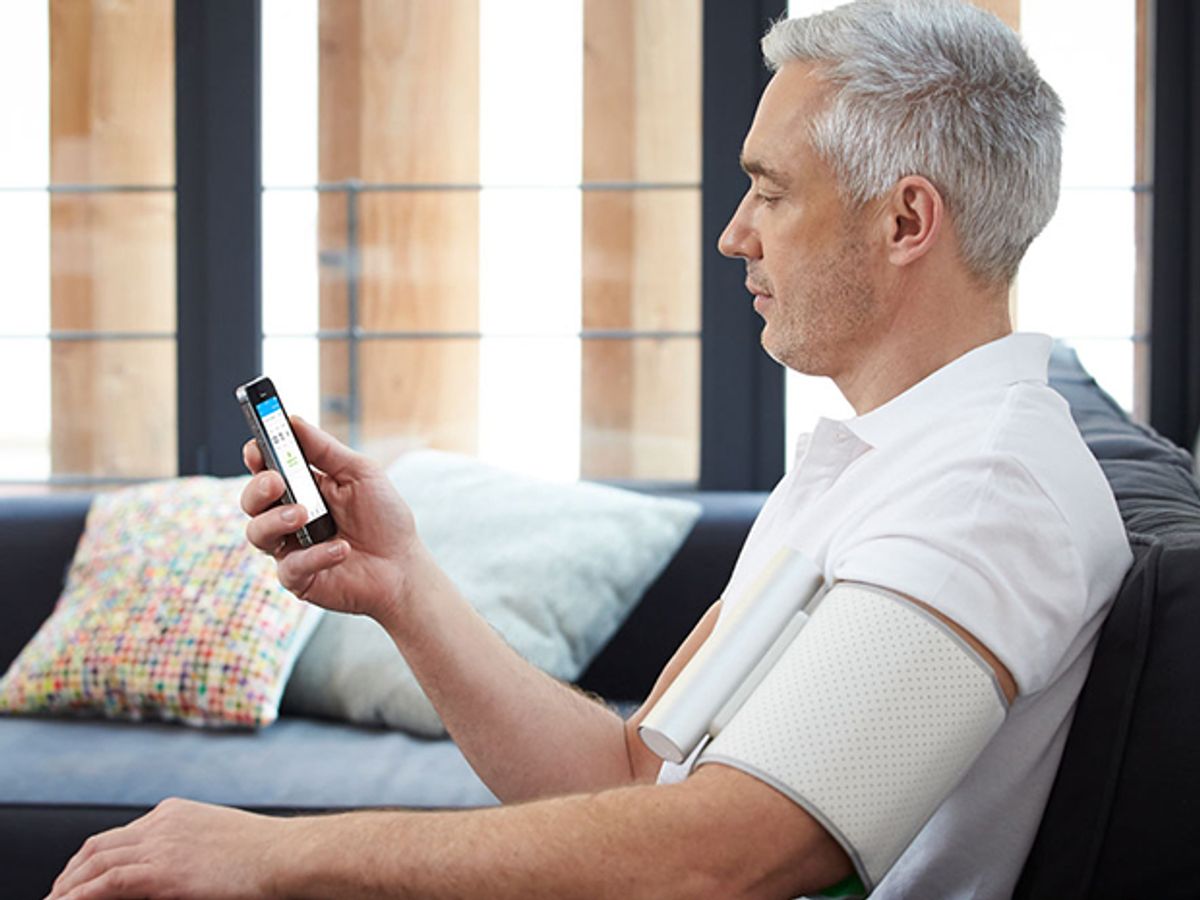Smartphone apps designed to monitor patients with diabetes, high blood pressure, and heart disease may help reduce health care costs in the long run. But one of the most rigorous studies to date has found no big difference in health care costs for patients using mobile health apps and similar patients who did not rely on smartphone monitoring.
Yet one study does not mean digital medicine is dead, says Eric Topol, a cardiologist and director of the Scripps Translational Science Institute in La Jolla, Calif. On the bright side, the study found that patients who used the mobile health app monitoring had a better sense of both well being and control over their chronic health conditions. And as a digital medicine optimist, Topol cautions that his group’s latest study was limited in scope because of the relatively small number of patients involved. The study also lasted just six months—hardly enough time to definitively measure health outcomes of patients suffering from long-term diseases.
“This was more of a learning experience than about trying to make a sweeping statement on digital medicine’s impact on the health care system,” Topol says.
The research team initially faced some difficulty in finding a journal that would publish a study perceived to have negative results, Topol says. But their work finally appeared in the 14 January online issue of the journal PeerJ.
In any case, this study of digital medicine still stands out because researchers applied the gold standard of scientific inquiry: a randomized-controlled trial design. They recruited from a list of 3,998 eligible individuals insured by the Scripps Health system who had insurance claims related to one of three health conditions: hypertension, diabetes, and heart arrhythmia.
Of the nearly 4,000 eligible individuals, 160 people ended up enrolling and 130 completed all phases of the study. Each study participant enrolled on a rolling basis for six-month periods sometime between Jan. 2013 and December 2014.
The study focused on measuring two main results for the intervention group (patients using smartphone monitors) and the control group (those who did not use smartphones). First, the researchers looked at the usage of health care resources as defined by health insurance claims and hospital visits. Second, it looked at patients’ health self-management: a measure of a person’s confidence, skill, and knowledge in managing his or her own health.
Usage of health care resources did not change significantly between the smartphone and non-smartphone groups. But such a result does not spell doom for the idea of smartphone apps enabling people to better manage their health and reduce health care costs. The researchers specifically state that their six-month study is too short to capture the possibility of smartphone monitoring leading to healthier patients who, in the long run, actually require fewer hospital visits.
Such a “negative” result could also be seen as good news for experts who feared that patients armed with data from health apps will actively waste health care resources by making unnecessary trips to the doctor’s office or emergency room. “The sanguine interpretation is that at least people with all their health data didn’t increase resource consumption,” Topol says.
Topol and his colleagues originally wanted to conduct a much larger study with many more patients being monitored over several years. But they had trouble getting almost any funding for even this relatively limited study. The team had to spend much of its limited “austerity budget” on buying iPhone 4 or 4s smartphones and corresponding data plans for the study participants. (Companies also donated some mobile devices such as blood pressure monitors, blood glucose meters and mobile ECGs.)
Ironically, the ensuing debate over this limited study’s results has led some companies to step forward and offer Topol’s group funding for future studies. Topol himself remains optimistic that a larger, longer-lasting study could potentially show the benefits of smartphone apps and other digital medicine tools.
Topol envisions future studies looking at far more advanced digital medicine interventions. Virtual medical assistants in the form of avatars could someday interact with patients through their smartphones. “Like the movie ‘Her’ but medical,” Topol says. Rather than measure each health condition by a single metric, the digital medicine of the future could, with the availability of more health sensors, rely on dozens of metrics for each individual condition. Smart computer algorithms and machine learning could enable even smarter personalized medicine tailored to each individual.
Compared with that shiny future vision off in the distance, Topol describes his recent research as a “caveman study.” But he’s confident that additional studies could do better in finding out the future impact of digital medicine.
“If we can reload with much better technology, more technology to cover the bases more extensively than just the three conditions with intermittent checks,” Topol says, “With more continuous data, more sensors, a larger study sample size, better data visualization, and better engagement with patients, maybe we’ll come up with a different answer.”
Jeremy Hsu has been working as a science and technology journalist in New York City since 2008. He has written on subjects as diverse as supercomputing and wearable electronics for IEEE Spectrum. When he’s not trying to wrap his head around the latest quantum computing news for Spectrum, he also contributes to a variety of publications such as Scientific American, Discover, Popular Science, and others. He is a graduate of New York University’s Science, Health & Environmental Reporting Program.



